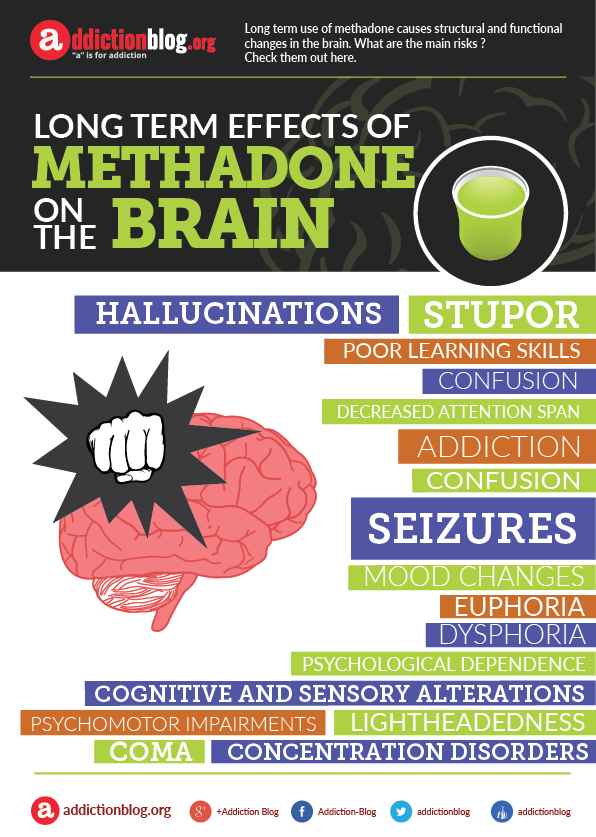Methadone abuse has adverse effects on the brain
Methadone is a useful medication when prescribed to people detoxing and recovering from opioid drug addiction and helps lower the harmful and risky consequences. However, due to it’s price and easy availability, methadone is also a common drug of abuse for many people who have not been prescribed or need it for therapeutic reasons.
What are methadone’s effects on the brain?
Methadone in most people produces feelings of sedation and contentment as a result of its action on the opioid receptors of the brain. When methadone is abused, one of the main reason for the abuse are the feelings of high and lethargy. However, in those who abuse methadone continuously for a longer period of time, more serious side effects can be observed. Those adverse effects include:

- confusion
- depression
- disorientation
- hallucinations
- mania
- mental clouding
- mood changes
- restlessness
- sleep problems
Methadone dependence and addiction
Methadone is an extremely physically addictive drug, and the risk of addiction is higher when it is not used under the supervision of a doctor or addiction treatment provider. Dependence to methadone is developed in both, therapeutic users and abusers. It is simply the result of our organism getting adapted to the presence of the medication, so when doses are lowered or abruptly stopped, withdrawal symptoms occur.
Methadone effects on the brain questions
Now it’s your turn! Send us your comments and questions by posting them in the section at the end of the page and we’ll try to provide a personal and prompt response. Also, if you like our infographic and find the information useful, feel free to SHARE it.








Related Posts